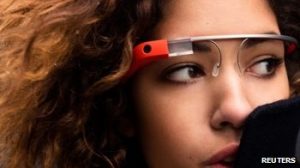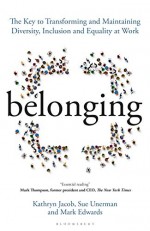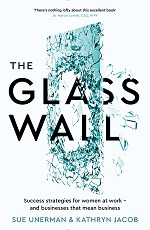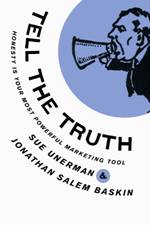 So one of football’s managerial greats has gone. Ferguson’s era is finally over.
So one of football’s managerial greats has gone. Ferguson’s era is finally over.
The BBC’s chief football writer Phil McNulty sums him up in three words here “Charismatic, explosive, contrary”. It is the latter that explains his brilliance for me. Sir Alex has never acted as he was “supposed to”. When Wayne Rooney first threatened to quit, back in 2010, Ferguson created a reality-changing “Truth Turning Point” (a pivotal moment in communications that “defies every convention .. and gets the audience to the truth quickly and easily”), which I examined in detail in my book. McNulty goes on: “Love him or hate him, football in general and Man United in particular will be poorer for his departure.” Of course he is hated as well as loved. Which is characteristic for non-conformists and explains why there isn’t a richer pool of non-conformists out there.
This matters.
According to Professor Costis Markides, speaking at a Deloitte breakfast in early May, non-conformity is the key ingredient to innovation and creativity. Yet learning to conform is almost unavoidable. Markides cited the landmark survey developed by George Land as a test of creativity. Land ran his test with a set of kids over their childhood and adolescence. Aged five 98% of the kids qualified as “creative geniuses”. When those same kids were tested at age ten 30% were at genius level. Aged fifteen : 12%. That longitudinal test then ended (Land quips “because everyone got depressed..”). But when over 1m adults were given the same test the result was 2%.
Land concluded that “non-creative behaviour is learned”. Or, put it another way, we learn to conform. Most of us like to conform. Resisting conformity can be a lonely road. Most people don’t manage it – even when conforming clearly doesn’t make any sense, as this famous Candid Camera sketch clip shows clearly.
So here’s to the non-conformists. To those who reject conformity, because they don’t think it’s right for them. (Not the ones who are outside the law, that’s not what this is about). To the people who zig when everyone else zags. Who stay mute when everyone else is singing along. Who won’t take part in communal games and who absent themselves just as the drinking is gaining momentum. The owners of the banged up Citroen in a carpark full of BMWs. The ones with the unusual dress sense and unpopular tastes in music. Who don’t automatically do as they are told, and yet have a good reason. They should be cherished and they should be encouraged. If you can make room for them within your organisation – and research shows that they’re few and far between – they may be the ones that make the real difference in sustained innovation, creativity and competitive advantage.






A Total Eclipse of the Media Rationale ?
Thursday, May 23rd, 2013What is a surprise is that academic research from a noted music college has conclusively proved that this is a perfectly fair and just result. Denmark triumphed on merit alone. European politics had no part in it. According to this recent research, there is no truth at all in the idea (widely believed over here) that the voting essentially involves friendly countries doing each other favours, while countries who may have thrown their military or diplomatic weight around in the past get treated less generously.
Are you convinced ? Or are you betting it’s a music college based in Scandinavia? Are you thinking that it’s probably the kind of so-called research that Michael Gove got slated for last week ?
In the interests of fair play I should point out that another piece of research came out the same week offering a very different explanation. This survey of former Eurovision officials suggests that the UK is indeed unfairly treated due to long-standing grudges and historic discord – and achieves well below the level of success it deserves on purely musical merits.
Are you feeling more trusting of this source ?
If you’re any kind of patriot, you should be.
I’ll come clean. None of that research exists. I just wanted to carry out a small experiment in the phenomenon of “confirmation bias”.
Confirmation bias was named by Peter Wason, a cognitive psychologist in 1960. . It describes the tendency to seek out and interpret evidence in ways that confirm what you already think. Author Jonathan Haidt describes this in his latest book “The Righteous Mind“.
He says “Psychologists now have file cabinets full of findings on “motivated reasoning” showing the many tricks people use to reach the conclusions they want to reach. When subjects are told that an intelligence test gave them a low score, they choose to read articles criticising the validity of IQ tests”. Haidt points out that “now that we all have access to search engines on our cell phones, we can call up a team of supportive scientists for almost any conclusion 24 hours a day. Whatever you want to believe…. just Google your belief.. and Google will guide you to the study that’s right for you.”
Haidt is making a big point here. Search and personalised search both encourage and reinforce confirmation bias. The better the Search engine knows you, the more likely you are to find the answer you most like to hear. Facebook Search and Twitter Search will surely make this even stronger, as you’ll get answers from those you care about and admire.
Gradually we can expect people to shut their eyes and ears and reasoning even further to ideas and indeed facts that don’t suit what they don’t want to believe.
There are all kinds of ways in which this matters. Major political and spiritual conflicts are not going to be helped by less open mindedness.
There is also I think a major irony in this for digital media in general. One of the ways confirmation bias works in our industry is that traditional media tend to come out more strongly than digital media time and again from traditional industry research. We’re used to seeing traditional channels deliver good reach and returns. We are not used to seeing this from less traditional channels and so many people don’t expect to see it. This should be no great surprise as without the evidence, brands are nervous about spending large sums on unproved media channels. Some speculate that the tests that are carried out may not have the weight of spend that’s required to make them a success. Of course, as well, traditional media research was designed to measure traditional media channels, and has been slow and measured in adapting to newer media.
This may mean that the very media (Google and Facebook) that are exacerbating confirmation bias and motivated reasoning are suffering from them in media rationale presentations every day. Are brands reluctant to try something that is unproven and therefore seek out the research that justifies sticking to traditional routes? What should we do about this? We need to watch out for confirmation bias. It may be eclipsing a fair showing for social and digital media in media rationales. Maybe we should have a CB factor to help us. If only we could find a way to research what that should be. Oh the confirmation bias irony.
Posted in MediaComment | No Comments »